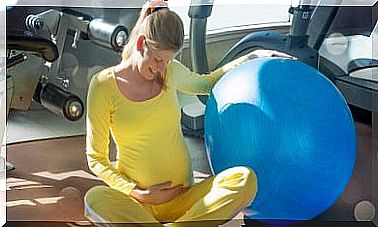How To Stimulate Scientific Thinking In Children

Stimulating scientific thinking in children has enormous benefits. Not only on an academic level, but also in their daily lives and in their personal development.
The development of reasoning and logic will be decisive in helping them to solve the problems they encounter and adapt to the new situations they face.
When we talk about scientific thinking, we don’t just mean that which has to do with science (mathematics, nature, biology, engineering, medicine, geometry). We are also talking about the ability to be independent and to solve the problems of everyday life.
Why is it important to stimulate scientific thinking in children?

As we have said before, it is very important to encourage this kind of thinking in little ones. They are in full development and anything that gives them cognitive stimulation will be very positive for their academic development and as independent people.
So we’re going to look at the benefits you can bring to your kids if you encourage scientific thinking.
- Improves learning to solve problems in real situations.
- Increases the observation and analysis capacity in children about what is happening in their environment. At the same time, it improves their reasoning skills and promotes the construction of more complex ideas.
- Develops their teaching capacity and enables them to learn strategies to give their own solutions.
- Strengthens children’s relationship with their environment and the way they experience it.
- Helps build own learning.
- Improves their perception of space and their relationship with the physical environment (shapes, parts, everything, etc.).
These are just some of the benefits for which it is important to encourage scientific thinking in our children. This allows them to face and solve difficult situations, analyze from different points of view and have a global vision of the world in which they live.
What should you pay attention to in order to sufficiently stimulate scientific thinking?
In order for the development of scientific thinking to be adequate, certain essential aspects must be taken into account. Below we will look at some of them:
- Use scientific thinking in your child’s daily life.
- Use logic to solve complicated situations.
- Provide the skills and techniques your child needs to observe and analyze their environment and act accordingly.
- Encourage children to try, even when they make mistakes. They should try solutions and if they don’t work, they should change them. Making mistakes is a learning opportunity and we need to teach our children this concept.
Tips to stimulate scientific thinking in children
Scientific thinking helps children relate facts, ideas, and causes with their effects. If we apply some simple exercises in our daily life, we will help them to develop this way of thinking, logic and deduction. In that sense, let’s take a look at some tips that you can apply:
Encourage their curiosity about the world
We should encourage little ones to examine all the objects around them, to understand how things work and what they are for. This means that they have to manipulate the objects and test trial and error to realize the mechanisms that set them in motion.
From the time they are little, parents should allow them to manipulate all kinds of objects, including various materials, fabrics, toys, etc. As long as the objects are safe, of course.
Initially, by touch and sight, children will determine the differences between the objects in terms of colors, shapes and sizes. At the same time, they examine their features and functions. As they grow, you can use some household science experiments to analyze the cause-and-effect relationship.
Ask questions to encourage their interest in things
There are very curious children who ask and touch everything, while others are not so curious. For the latter, we need to pique their interest by asking them questions about the world around them. At the same time, we should encourage them to do research to find an explanation for everything they don’t understand.
Let them practice and try to solve the problems they encounter
As long as it’s not dangerous, we should let them find solutions on their own, according to their criteria, when problems arise in manipulating or setting up an object. This should always be done under your supervision and you should be patient and give advice if necessary.
Use play and fantasy

You can present them simple challenges to try to solve them. For example, you can also start a story and ask them to continue it. Also, have them explain what happens to the characters, how they think, how they react, etc.
Use stories to encourage scientific thinking in children
Stories can also be a very good tool to encourage scientific thinking in children. First, read the story aloud and then ask them questions to develop their reasoning and understanding.
Later, when they are older, they will most likely try to find the answers to the questions they have by consulting and researching other books, etc.
Gently direct their learning
If they’re faced with a problem they can’t solve, don’t give them the solution. Instead, you can, for example, give them directions or ask questions that will lead them to the solution as they think. In this way, they will be the ones to find the solution.
As you can see, it is very important for parents to encourage scientific thinking in their children. This will help them not only in the academic field where it will be very important, but also for their formation as independent individuals capable of solving the problems they face.
Always remember that as parents we are their guides on this path of learning and that with patience, love and dedication we can help our children to become great people in all areas.









